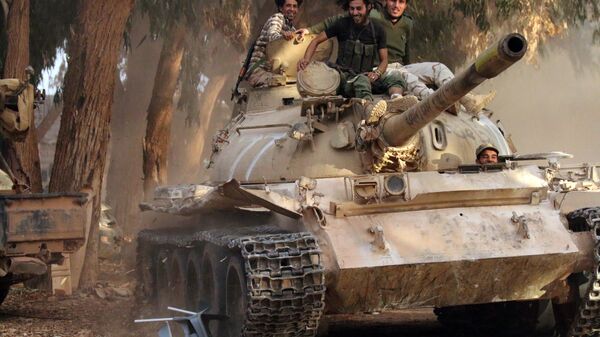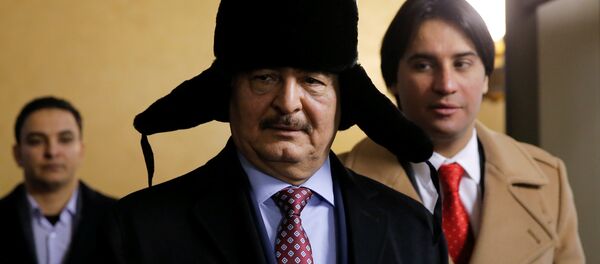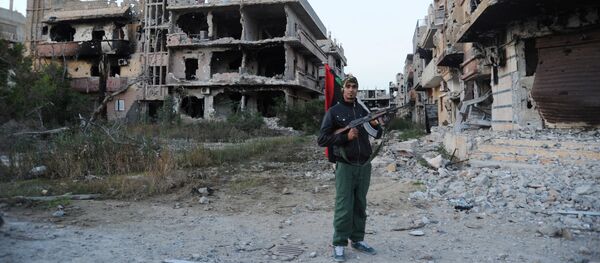The UN Security Council imposed an arms embargo on Libya in February 2011, after the country became politically unstable. The trade ban requires that all UN member states prevent the sale or supply of arms and all related materiel, including weapons and ammunition, military vehicles and equipment and spare parts, to the country.
"We have discussed previously signed contracts with the Russian friends. But, from the practical point of view, the arms embargo is still in force, which makes it difficult to implement these contracts, although they were signed before the UN Security Council adopted the embargo," Haftar said.
The administration of US President Donald Trump is still collecting information on the Libyan crisis and has yet to develop its final position on the matter, Khalifa Haftar told Sputnik.
"The US administration is now at the stage of gathering information about the political situation in Libya. It seems obvious that the administration has not fully made clear its position yet. We hope that it will put the demands of the Libyan people as one of its primary goals, and that the Russian Federation and the United States will confront extremists, who try to take the upper hand on the political arena and impose their views on the Libyans," Haftar said.
The commander added that he could not evaluate the perspectives of the Russian-US coordination in Libya.
The eastern authorities act independently from the west, cooperating with the Libyan National Army led by Haftar to fight against Islamist terrorists.
In June and November 2016, Haftar already visited Russia to meet with Russian Defense Minister Sergei Shoigu, Security Council Secretary Nikolai Patrushev and Foreign Minister Sergey Lavrov.
In early January, Haftar visited Russia's Admiral Kuznetsov aircraft carrier and discussed the fight against terrorism in the Middle East during a video conference with Shoigu.




